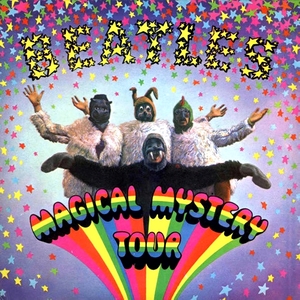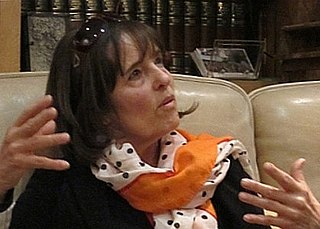Related Research Articles

Sgt. Pepper's Lonely Hearts Club Band is the eighth studio album by the English rock band the Beatles. Released on 26 May 1967 in the United Kingdom and 2 June 1967 in the United States, it spent 27 weeks at number one on the UK Albums Chart and 15 weeks at number one on the Billboard Top LPs chart in the US. It was lauded by critics for its innovations in production, songwriting and graphic design, for bridging a cultural divide between popular music and high art, and for reflecting the interests of contemporary youth and the counterculture. It won four Grammy Awards in 1968, including Album of the Year, the first rock LP to receive this honour.

Geoffrey E. Emerick was an English sound engineer who worked with the Beatles on their albums Revolver (1966), Sgt. Pepper's Lonely Hearts Club Band (1967) and Abbey Road (1969). Beatles producer George Martin credited him with bringing "a new kind of mind to the recordings, always suggesting sonic ideas, different kinds of reverb, what we could do with the voices".

Magical Mystery Tour is a record by the English rock band the Beatles that was released as a double EP in the United Kingdom and an LP in the United States. It includes the soundtrack to the 1967 television film of the same name. The EP was issued in the UK on 8 December 1967 on the Parlophone label, while the Capitol Records LP release in the US occurred on 27 November and featured an additional five songs that were originally released as singles that year. In 1976, Parlophone released the eleven-track LP in the UK.

"Lucy in the Sky with Diamonds" is a song by the English rock band the Beatles from their 1967 album Sgt. Pepper's Lonely Hearts Club Band. It was written primarily by John Lennon and credited to the Lennon–McCartney songwriting partnership. Lennon's son Julian inspired the song with a nursery school drawing that he called "Lucy – in the sky with diamonds". Shortly before the album's release, speculation arose that the first letter of each of the title nouns intentionally spelled "LSD", the initialism commonly used for the hallucinogenic drug Lysergic acid diethylamide. Lennon repeatedly denied that he had intended it as a drug song. He attributed the song's fantastical imagery to his reading of Lewis Carroll's Alice in Wonderland books.
"Being for the Benefit of Mr. Kite!" is a song recorded by the English rock band the Beatles for their 1967 album Sgt. Pepper's Lonely Hearts Club Band. It was written and composed primarily by John Lennon and credited to Lennon-McCartney.

"A Day in the Life" is a song by the English rock band the Beatles that was released as the final track of their 1967 album Sgt. Pepper's Lonely Hearts Club Band. Credited to Lennon–McCartney, the verses were mainly written by John Lennon, with Paul McCartney primarily contributing the song's middle section. It is widely regarded as one of the finest and most important works in popular music history.

Sir Peter Thomas Blake is an English pop artist, best known for co-creating the sleeve design for the Beatles' album Sgt. Pepper's Lonely Hearts Club Band and for two of the Who's albums. His other best known works include the cover of the Band Aid single "Do They Know It's Christmas?", and the Live Aid concert poster. Blake also designed the 2012 Brit Award statuette.

"Within You Without You" is a song by the English rock band the Beatles from their 1967 album Sgt. Pepper's Lonely Hearts Club Band. Written by lead guitarist George Harrison, it was Harrison's second composition in the Indian classical style, after "Love You To", and was inspired by his stay in India in late 1966 with his mentor and sitar teacher, Ravi Shankar. Recorded in London without the other Beatles, the song features Indian instrumentation such as sitar, dilruba and tabla, and was performed by Harrison and members of the Asian Music Circle. The recording marked a significant departure from the Beatles' previous work; musically, it evokes the Indian devotional tradition, while the overtly spiritual quality of the lyrics reflects Harrison's absorption in Hindu philosophy and the teachings of the Vedas.

"Sgt. Pepper's Lonely Hearts Club Band" is a song written by Paul McCartney, and first recorded and released in 1967, on the album of the same name by the Beatles. The song appears twice on the album: as the opening track, and as "Sgt. Pepper's Lonely Hearts Club Band (Reprise)", the penultimate track. As the title song, the lyrics introduce the fictional band that performs on the album.

"Good Morning Good Morning" is a song by the English rock band the Beatles from their 1967 album Sgt. Pepper's Lonely Hearts Club Band. It was written by John Lennon and credited to Lennon–McCartney. Inspiration for the song came to Lennon from a television commercial for Kellogg's Corn Flakes. Another reference to contemporary television was the lyric "It's time for tea and Meet the Wife", referring to the BBC sitcom.

Giles Martin is an English record producer, songwriter, composer and multi-instrumentalist. His studio recordings, stage shows, TV and film works have been critically acclaimed and commercially successful around the globe. He is the son of Beatles producer George Martin and half-brother of actor Gregory Paul Martin.

Yellow Submarine is a 1968 British animated film inspired by the music of the Beatles, directed by animation producer George Dunning, and produced by United Artists and King Features Syndicate. Initial press reports stated that the Beatles themselves would provide their own character voices. However, aside from composing and performing the songs, the real Beatles participated only in the closing scene of the film, while their cartoon counterparts were voiced by other actors.

Liverpool Sound Collage is an electronic album by Paul McCartney, which is also credited to the Beatles, Super Furry Animals and Youth. McCartney had previously released two projects with Youth under the moniker the Fireman. Because McCartney was so heavily involved in its creation, in addition to his production credit, Liverpool Sound Collage, which was released in 2000, is generally considered a part of his main discography and is filed under his name.

Blue Wild Angel: Live at the Isle of Wight is a posthumous live album by Jimi Hendrix released on November 12, 2002. The album documents Hendrix's last U.K. live performance at the Isle of Wight Festival on August 31, 1970, three weeks before his death. The set list for the concert contained songs from the original Experience albums, as well as new songs. Some were previously available on Isle of Wight (1971) and Live Isle of Wight '70 (1991).

Sgt. Pepper's Lonely Hearts Club Band is a double album produced by George Martin, featuring covers of songs by the Beatles. It was released in July 1978, as the soundtrack to the film Sgt. Pepper's Lonely Hearts Club Band, which starred the Bee Gees, Peter Frampton and Steve Martin.

Jann Haworth is an American pop artist. A pioneer of soft sculpture, she is best known as the co-creator of The Beatles' Sgt. Pepper's Lonely Hearts Club Band album cover. Haworth is also an advocate for feminist rights especially for the representation of women in the art world.
Instant Coffee is a Canadian artist collective based in Vancouver, and Toronto. Formed in 2000, the collective's membership has undergone a number of changes. Its most active members have included Cecilia Berkovic, Jinhan Ko, Kelly Lycan, Jenifer Papararo, and Khan Lee.
Annie Martin is a Canadian artist who works with installation, audio, video and textiles. Her work has been exhibited throughout Canada and internationally. Martin lives in Lethbridge, Alberta where she teaches at the University of Lethbridge. She previously lived and worked in Montreal.
Roula Partheniou is a Canadian contemporary artist.She currently practices in Sackville, New Brunswick and is co-Director of Struts Gallery & Faucet Media Arts Centre.
The 1978 Stinkers Bad Movie Awards were released by the Hastings Bad Cinema Society in 1979 to honour the worst films the film industry had to offer in 1978. The ballot was later revisited and the expanded version was released in the summer of 2003. Listed as follows are the original ballot's picks for Worst Picture and its dishonourable mentions, which are films that were considered for Worst Picture but ultimately failed to make the final ballot, and all nominees included in the expanded ballot. All winners are highlighted.
References
- ↑ "Masterpiece in a bottle - The Star".
- ↑ "Dave Dyment and Roula Partheniou announced as new Co-Directors of Struts Gallery & Faucet Media, Sackville". Akimbo. Retrieved 2020-05-22.
- ↑ "Paul + Wendy Projects - Pop Quiz by Dave Dyment". www.paulandwendyprojects.com. Retrieved 2018-08-01.
- ↑ "Paul + Wendy Projects - Sgt Pepper's Extended Lonely Hearts Club Band by Dave Dyment". www.paulandwendyprojects.com. Retrieved 2018-08-01.
- ↑ http://mkg127.com/artists-mkg/dave/